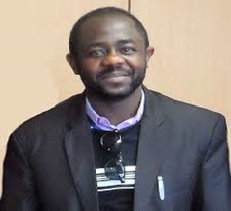Prof. Kenneth Yongabi Anchang, Imo State University, Owerri, Nigeria

About Prof. Kenneth Yongabi Anchang: A professor of public health infectiology and Phytobiotechnology at the department of Public Health, Faculty of Health Sciences, Imo State University, Owerri, Nigeria and adjunct Professor of medical biotechnology at the Ebonyi State University, Abakaliliki, Nigeria. He founded the Phytobiotechnology Research Foundation Institute Cameroon in 2007, an institute that validates and scale up local knowledge for sustainable development in Africa. He served as the director of research and development at the Catholic University of Cameroon 2013 -2018.His research covers the African public health systems and the African traditional medical system, biopharmaceuticals, mushroom biotechnology. He has more than 100 scientific publications, six scholarly chapters, two books and numerous conference and technical papers.
Topic of the plenary talk: Can we conquer infectious diseases in Africa with myco-pharmaceuticals from African medicinal mushrooms? A 19 years research testament.
Authors: Kenneth Yongabi Anchang
Abstract of the talk:
African mushrooms are widely known for their ethno medicinal and nutritional value but detail studies to authenticate the effect of these medicinal mushrooms on specific infectious diseases and its complications are still questionable and unexploited. The need for a critical exposé of African mushrooms as biopharmaceuticals and myco-ceuticals in the treatment and prevention of infectious diseases and its attending complication is presented. We demonstrate in this paper a 19 years unbroken studies on how bioactive extracts from mushrooms have been studied via both bioassay guided fractionation and product formulation field trials to address HIV/AIDS, Malaria, opportunistic fungi infections and some selected bacterial infections such as Mycobacterium spp the etiologic agent of buruli ulcers, and water borne bacterial infections. A documentation of 23 mushroom species belonging to 23 families used in various therapeutic preparations for the management of HIV/AIDS in rural North West Region of Cameroon and South East Nigeria was made. Dietary supplements made from organic and aqueous extracts of Flammiluna spp, Termitomyces titanicus and Pleurotus ostreatus have demonstrated more than 95% increase in CD4 counts of patients with HIV/AIDs with significant reduction of viral loads. MycodermTM a topical product developed from extracts from Ganoderma lucidum species have demonstrated both in vitro antimycotic activity as well total clearances of skin fungal infections in an “exit pool clinical trial”. In this paper, we further shed light on how extracts of Ganoderma lucidum have demonstrated antimalarial effects via modulation of Lipoprotein cholesterol levels in Plasmodium berghei malarial infection. For the first time, a report on the use of Pleurotus tuberregium sclerotium extracts to disinfect water, serving as a myco-electrolytes and mycocoagulants comparable to alum and chlorine with significant in vitro activity on water borne E coli strains. From the phytochemical profiles of these mushrooms, beta glucans, chitins, chitosan, and other bioactive peptides can potentially serve as sources for biopharmaceuticals for the treatment of tropical infectious diseases.
Key words: Mushrooms, Myco-pharmaceuticals, Infections, Diseases, Bioactivity.
